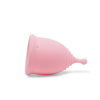
This is the room where many of us create the most clutter and waste. It is here that we bring food packaging into our houses and discard it once we have unwrapped whatever is inside. But what if you avoided bringing those items home in the first place, or if you replaced trash-producing disposables and single-use plastics with items that could be reused or composted?
Let’s find out shall we.
Single-Use Or Non-Compostable Products -The Enemy
Replacing typical kitchen items with those that can be recycled endlessly or decompose when they reach the end of their lifespan will help you decrease waste both instantly and over time.
The items that can likely be swapped for their ‘Zero Waste’ counterparts include:
-Wooden or bamboo cutting boards for Plastic cutting boards
-Glass jars for Plastic storage containers
-Beeswax wraps for Plastic wrap or wax paper.
Streamline Your Supplies
Some zero-wasters have trouble locating package-free meat and cheese. You can bring your own containers to the local store's deli area and request that the product be placed inside (after weighing the container).
At home, some appliances promote us to purchase things that, if not carefully considered, can result in waste. For delicious smoothies, high-speed blenders may tempt you to buy plastic-wrapped frozen fruit out of season. Disposable filters may be required by your coffee maker. It maybe time rethink all these appliances.
You don't need a different cleaning product for each soiled item or surface in your house. Most chores may be completed using white vinegar and baking soda, which require fewer resources than various, individually packaged goods.
Smart & Sustainable Storage.
If you’ve been cooking your own food for a long time, you'll understand the need to store it somewhere, whether it's in your pantry, fridge, or kitchen. Fortunately, the same solutions that work in one place also work well in others as well. Beeswax wraps are perfect for covering produce, sandwiches, cheese, and bowls of leftovers. They are also useful for fridge or freezer storage. Glass or stainless-steel containers can be covered and tightly sealed with beeswax wraps acting as lids - before stacking them inside.
Composting – The Key To Reducing Food Waste
Convert your present garbage can to a large compost bin. Food waste accounts for about 45% of the waste stream in the average household. That means composting is the single most significant thing you can do to reduce the amount of waste you produce, whether through your local municipality's curbside pickup or your own backyard compost heap.
These tips basically help prevent most of the things that end up in your kitchen garbage from coming through the door. Next, we will check out at what a sustainable bathroom looks like.




Leave a comment